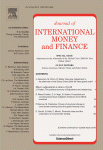Terzi, Α. (2015) “Is the ECB sacrificing reforms on the altar of inflation? – QE and its impact on structural reform efforts“, Bruegel Institute, 13 March. Roughly one month ago, Mario Draghi announced that the European Central Bank (ECB) would activate a large programme of sovereign bonds purchases (QE), in an effort to re-anchor euro area inflation expectations to the 2% target. In the run up to that decision …Read More
‘Neoliberal’ variants have dominated Europe’s history but they have paved the way for a new conception of human progress
Glendinning, S. (2015) ‘Neoliberal’ variants have dominated Europe’s history but they have paved the way for a new conception of human progress, LSE EUROPP, 16 March. The term ‘neoliberalism’ is frequently used in contemporary political discussions, but while polemically effective, conceptually it lacks rigour. Simon Glendinning writes on the relationship between the concept and classical liberalism. He argues that by defining neoliberalism in terms of this relationship it becomes …Read More
Confidence, aggregate demand, and the business cycle: A new framework
Angeletos, G. M., Collard, F. & Dellas, H. (2015) “Confidence, aggregate demand, and the business cycle: A new framework, VoxEU Organisation, 16 March. The Global Crisis has forced a revaluation of the standard macroeconomic models in use worldwide. This column discusses an enrichment that include a formal concept of ‘confidence’ about the short-medium term economic outlook – one that relates to market psychology rather than expectations about technology and …Read More
IMF Country Report No. 15/72: ICELAND
IMF Country Report No. 15/72: ICELAND – STAFF REPORT FOR THE 2014 ARTICLE IV CONSULTATION AND FIFTH POST-PROGRAM MONITORING DISCUSSIONS, 16 March 2015. KEY ISSUES Iceland has reached a relatively strong macroeconomic position with good growth prospects. But crisis legacies are still being unwound, including high debt and a large balance of payments (BOP) overhang contained by capital controls. Amidst public pressure for a return to normalcy, policies remain …Read More
Is there an easy way out? Private marketable debt and its implications for a Eurozone break-up
Amiel, D. & Paul-Adrien, H. (2015) “Is there an easy way out? Private marketable debt and its implications for a Eurozone break-up“, VoxEU Organisation, 15 March. As the Eurozone crisis lingers on, euro exit is now being debated in ‘core’ as well as ‘periphery’ countries. This column examines the potential costs of euro exit, using France as an example. The authors estimate that 30% of private marketable debt would …Read More
For a few dollars more: Reserves and growth in times of crises
Matthieu Bussière, Μ., Cheng, G., Chinn, D. M. & Lisack, N. (2015) “For a few dollars more: Reserves and growth in times of crises“, Journal of International Money and Finance, Vol. 52, Απρίλιος 2015, σελ. 127–145. Highlights Countries with higher reserves saw a smaller growth shortfall in the great recession. Reserve to short-term debt is the most significant reserve adequacy ratio. Reserves’ marginal effect on growth is somewhat reinforced …Read More
Sovereign debt, bailouts and contagion in the Eurozone
Kobielarz, M., Uras, B. & Eijffinger, S. (2015) “Sovereign debt, bailouts and contagion in the Eurozone“, VoxEU Organisation, 12 March. The Eurozone Crisis has been characterised by a sharp rise in sovereign interest rates in peripheral countries. The re-emergence of spreads between peripheral and core Eurozone countries at the start of the Greek crisis came after a decade of homogeneous interest rates in the monetary union. This column investigates …Read More
European Central Bank quantitative easing: the detailed manual
Claeys, G., Leandro, A. & Mandra, A. (2015) “European Central Bank quantitative easing: the detailed manual“, Bruegel Institute, 11 March. The European quantitative easing programme, the Public Sector Purchase Programme (PSPP), started on 9 March 2015 and will last at least until September 2016. Purchases will be composed of sovereign bonds and securities from European institutions and national agencies. The European Central Bank Governing Council imposed limits to ensure …Read More
The fiscal effects of work-related tax expenditures in Europe
Barrios, S., Fatica, S., Martinez, D. & Mourre, G. (2015) “The fiscal effects of work-related tax expenditures in Europe“, European Economy. Economic Papers, Νο. 545. February: Brussels. Work-related tax incentives can have a significant effect on how much, if at all, certain individuals decide to work. This paper examines the fiscal impacts and associated welfare costs of reforms to such tax relief measures in five European countries, France, Spain, …Read More
Searching for the EMU core member countries
Basse, T. (2015) “Searching for the EMU core member countries“, European Journal of Political Economy, Vol. 34, Supplement, June2014, pp. S32–S39. This study uses techniques of cointegration analysis and tests for structural change to search for changes to sovereign credit risk in some relevant member states of the European Monetary Union (EMU) trying to identify core countries. While there are a number of core countries the empirical findings presented …Read More





